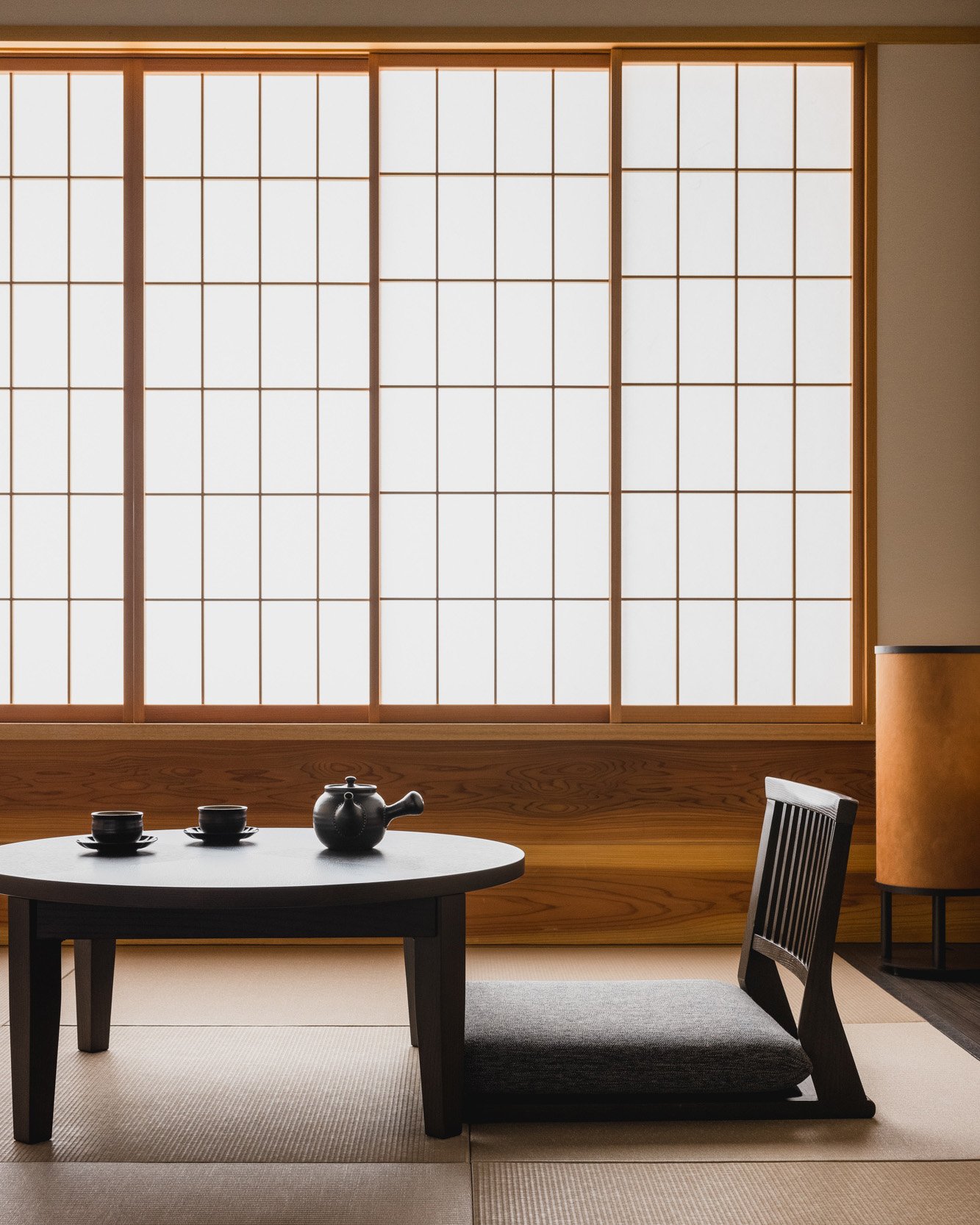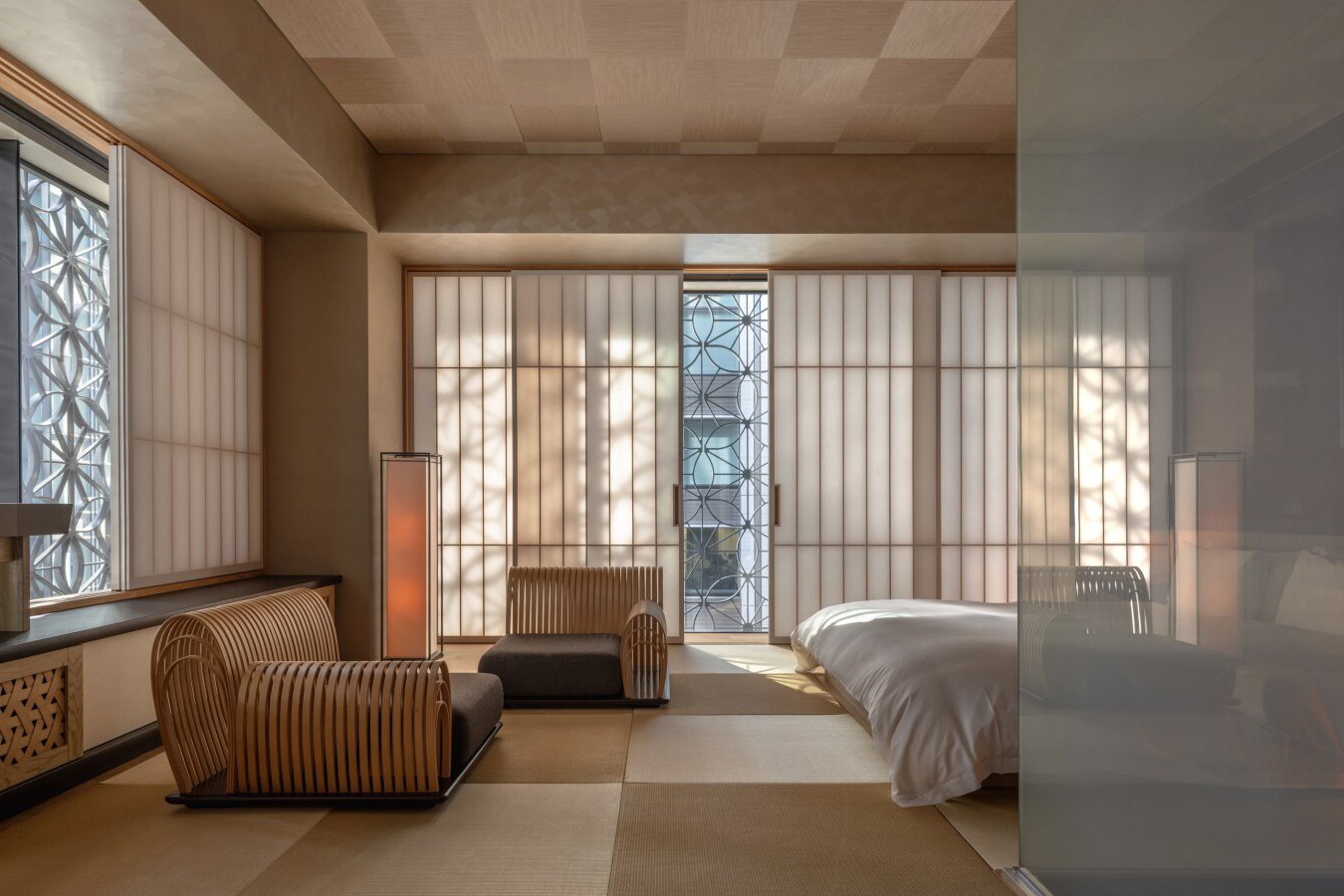7 Unique Ryokans to Add to Your Japan Bucket List
For many, the best way to understand a country is through immersion. In Japan that might be through diving into a piping hot bowl of tonkotsu ramen in Fukuoka, watching a traditional Noh theatre performance in Kyoto, or taking a spiritual hike along the Wakayama’s Kumano Kodo.
Accommodation is also an excellent chance to immerse yourself, and in Japan, none are better than ryokans. Long-standing Japanese inns that include onsen, traditional kaiseki cuisine, and the epitome of Japanese hospitality - they’re unlike normal hotels and offer guests a one-of-a-kind experience.
As you can probably imagine, Japan is full of ryokan options. From long-standing family businesses to unique boutique design hotels, inquisitive travellers are spoilt for choice. Here are 7 of my favourite ryokans that are worth adding to your Japan itinerary.
What is a Ryokan?
Originally built to welcome travellers, traders, pilgrims and samurai for the night, ryokans are perhaps the best place to experience Japanese hospitality, attention to detail, and first-class service. Usually, visitors choose to spend just a single night, recharging from their adventures before continuing on the day after. Staying in a ryokan often includes breakfast and dinner either served in the dining hall for most inns or sometimes directly in the room if your ryokan offers that service. Both traditional and contemporary ryokans focus on maintaining their atmosphere and appearance over providing the latest modern conveniences and amenities you might find in other hotels.
Service – Omotenashi is a concept deeply rooted in Japanese culture which prioritises selflessness, attentiveness, and a genuine warmth to its guests. Originally said to have been based on the cha-no-yu tea ceremony established by Sen-no-Rikyu in the 16th century, it’s the epitome of Japanese hospitality.
Facilities – Most ryokans will include some form of public Onsen or Sento, though some inner-city inns may not have the space. Some of the more luxury ryokans will even include an in-room open-air bath, but you’ll have to pay for the privilege
Food – It’s a top highlight of any ryokan stay. Most dinners, whether taken in the dining room or your own, come in the kaiseki ryori style. It’s a multi-course centuries-old meal where guests dress in their yukata (traditional Japanese clothing) before indulging in a local and seasonal meal.
Just because a ryokan is the best place for a traditional Japanese experience, doesn't mean each Japanese-style inn is the same. From multi-generational family-owned hotels to hot springs combined with contemporary architecture, here are some of the country's most unique traditional stays.
Image © Beniya Mukayu Ryokan Collection
Beniya Mukayu, Ishikawa
Best for: traditional hospitality
A short train ride away from the craft capital of Kanazawa, Beniya Mukayu is a Ryokan that holds architectural design and traditional hospitality in very high regard. The concept of Mukayu ‘richness in emptiness’ clearly influences both - a minimal accommodation designed to help guests unwind. Each room features a hot spring bath that looks out onto the Japanese trees and nature, and guests can partake in the free morning yoga.
Image © Hoshinoya Tokyo
Hoshinoya, Tokyo
Best for: inner-city stay
In the business district of Otemachi, Hoshinoya Tokyo is part traditional Japanese inn and part modern luxury hotel. 84 rooms are broken off into 6 rooms per floor, each acting as their own mini Ryokan based around a community tatami-floored tearoom. Expect a calm and refined service that offers a welcome break from the rush of Tokyo. A highlight of any stay at Hoshinoya Tokyo is the onsen fed by hot springs almost 5,000 feet underneath. This open-air bath allows you to hear the trains and commuters below while the elements, rain or shine, come directly through the chimney.
Looking for more Tokyo inspiration? Download your free Tokyo Neighbourhoods guide here
Hoshino Resorts Kai Poroto, Hokkaido
Best for: design lovers
A 42-room ryokan that convincingly blurs the line between bold man-made structures and natural backdrops. Its two bathhouses, Sankaku-no-yu and Maru-no-yu are inspired by the nearby ancient Ainu villages and are filled with mineral-rich water. Finish your day feasting on local seafood with daigo nabe, a hotpot overflowing with horsehair crab and scallops. It offers the highest quality of service, exceptional design, and new-age luxury.
Kumano Bettei Nakanoshima
Best for: open-air bathing
Other than seclusion and privacy, one of the biggest draws of ryokans for guests is the baths. One place that does both of these things very well is Kumano Bettei Nakanoshima. Backed by the sounds of the Katsuura Bay, Kumano Bettei Nakanoshima sits on its own island nearby Wakayama’s spiritual Kumano Kodo trails and is inspired by the ‘Luxury of Silence’. There are 44 rooms in both Japanese and Western styles, with the most popular being the newly constructed nagi-no-sho rooms, each with open-air baths and ocean views.
Pro tip: With views over the ocean, the onsite public onsen is one of the most scenic in the country
Discover lesser-known destinations, bucket list experiences and unique hotel recommendations in my brand-new guidebook, Views from Japan.
Hakujukan, Fukui
Best for: a spiritual awakening
At their core, visiting a ryokan can be an incredibly spiritual experience - Hakujukan in Fukui is a perfect example. Along with unrivalled access to local spiritual sites, the ryokan offers ‘Zen Concierges’ that give guidance to guests for intimate Zen activities both inside and outside the property. Experiences include joining the monks of the Eiheiji temple for sutra readings and burning incense, onsite meditation classes, and more. The in-house restaurant serves Buddhist vegetarian cuisine and local sake from Echizen.
Image © Satoyama Jujo Design Hotels
Satoyama Jujo, Niigata
Best for: redefined Luxury
Local farm-to-table cuisine, open-air baths surrounded by cedars with views of Mt. Makihata, and snowsports opportunities nearby. Satoyama Jujo is an adults-only 15-room mountain retreat that blends modern design with traditional architecture. The main building is 150 years old, with contemporary artwork by artists such as Shun Kawakami, Ryuichi Ohira, Kei Kaihoh, and Kanzo Shibata visible throughout.
Pro tip: Experience more art and design in Niigata at Echigo Tsumari Art Field.
Image © Ryokan Otozure Yamaguchi
Ryokan Otozure, Yamaguchi
Best for: mountainside relaxation
Perched by the side of the Fukawa River in Yamaguchi is Ryokan Otozure. Views over misty rolling hills greet most of its guests upon waking, while others can indulge in private open-air baths and sip local green tea on the spacious balconies. The Ryokan features a stunning courtyard water garden, a traditional teahouse, and a Japanese garden among other facilities - each designed to help you relax a little deeper. Nagato Yamaguchi kaiseki cuisine is prepared fresh each day at the onsite restaurant unyu, while next door at sister property Otani Sanso, Teppanyaki dishes are served to the highest standard.
Affiliate Disclosure: Please note this post may contain affiliate links. By purchasing via these links, I may earn a small commission at no additional cost to you. It’s a big help to keep this site up and running and I only promote products and services that I personally use and trust. Thanks!
Discover Japan, Minus the Crowds.
Are you tired of seeing the same over-crowded locations in Japan? I want to offer you a more meaningful experience; one that inspires you to travel to lesser-known destinations and explore Japan’s unique cultural experiences. Views from Japan is a brand new travel guidebook packed with over 260 unique experiences and timeless destinations, giving you all the tools so that you can create a once-in-a-lifetime Japan itinerary.















